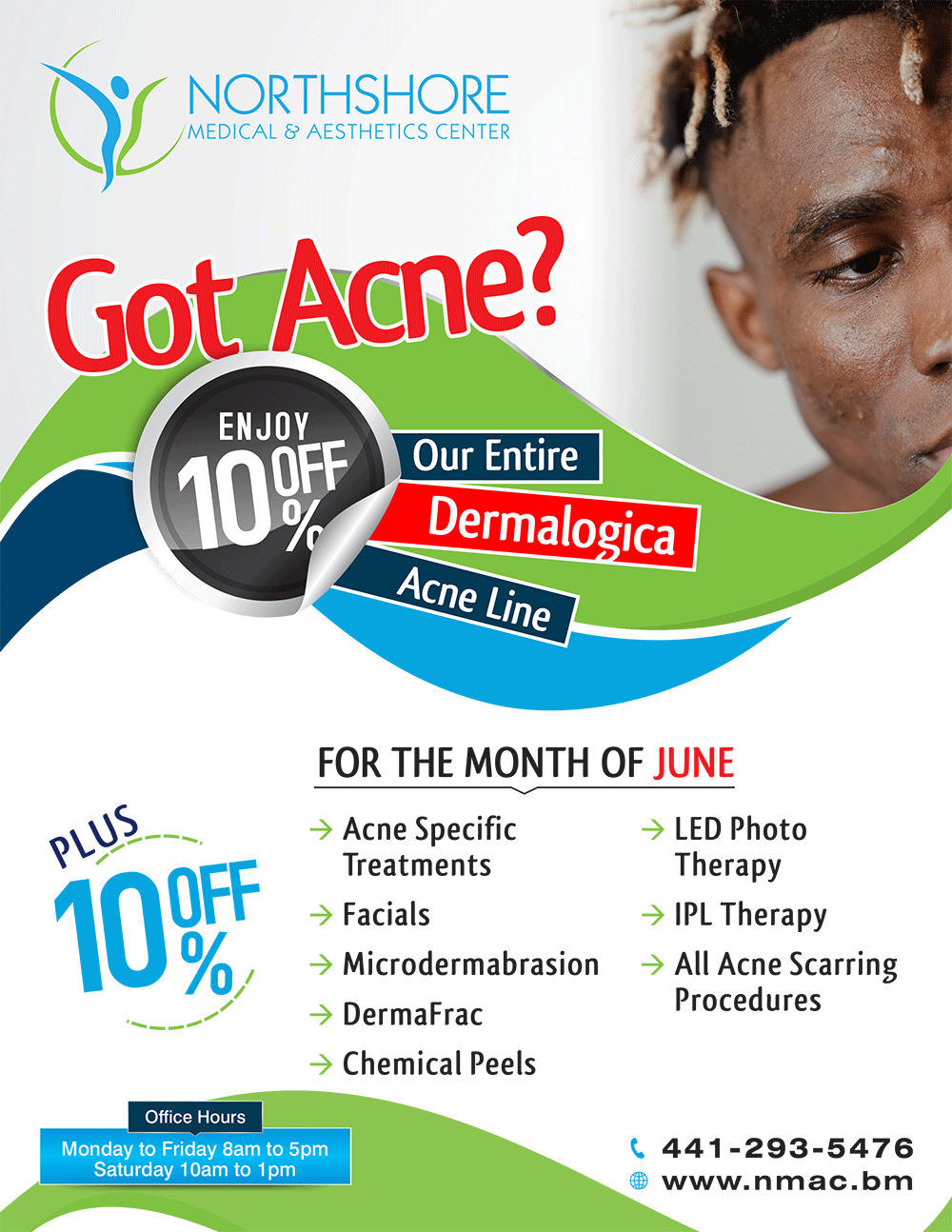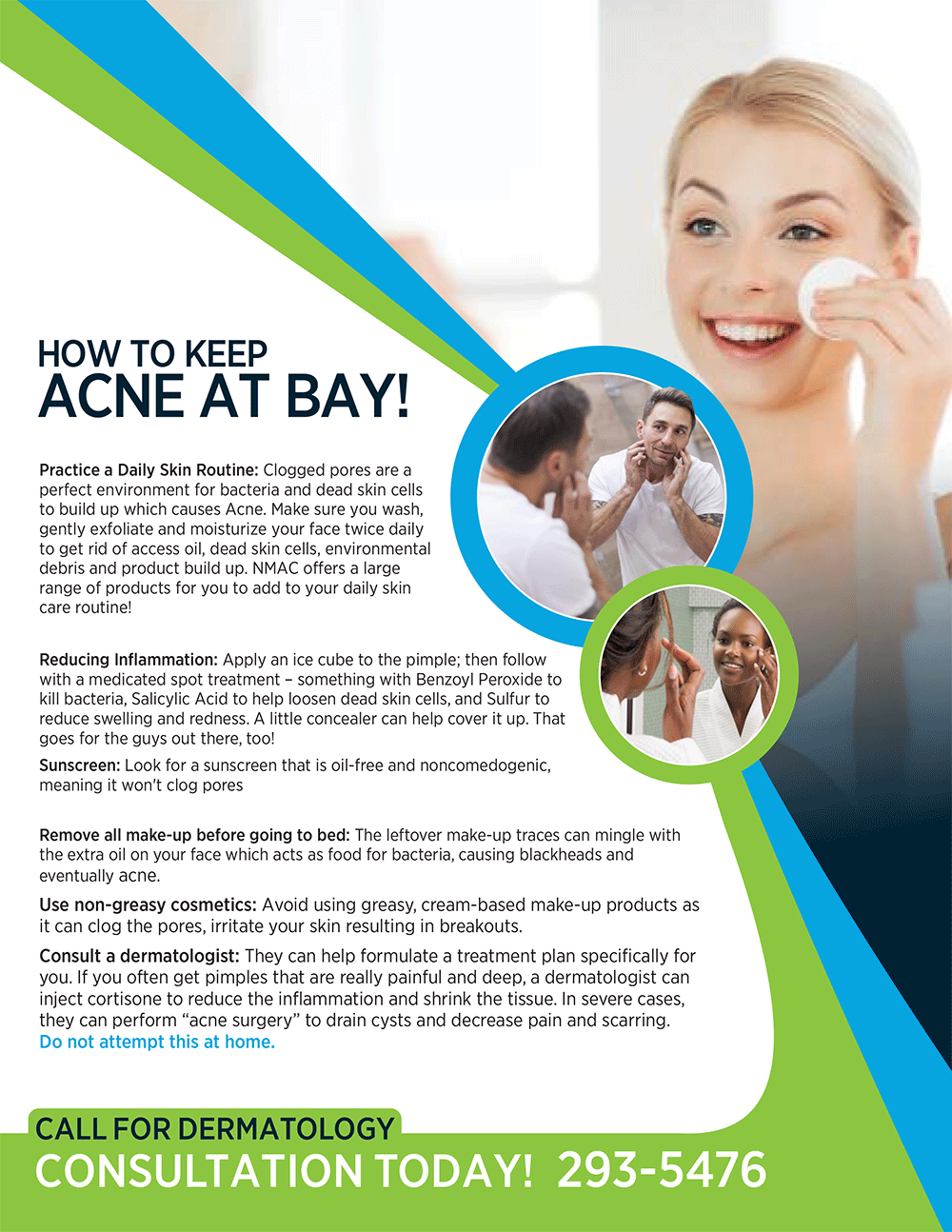


Only Teens Get Acne: FALSE!
Since 95% of adolescents encounter some form of acne, it does seem like they “own it”. However, adult acne in both women and men is a common occurrence with up to 30-40% of adults experiencing it. And sometimes acne starts in adulthood, with grown men and women wondering where all the bumps are coming from. More adult women will get acne as it directly correlates to hormonal fluctuations, of which women have more than men.
Though it's little compensation for teens that they are not alone, it's still a myth that only teens get acne.
It’s OK to pop pimples: FALSE!
Tempting as it may be, this is never a good idea. People mistakenly think that popping a pimple will make the pimple go away. This is untrue on many levels. Squeezing may drive Acne bacteria deeper into the pore, bacteria triggers an inflammatory response which makes the pimple red, swollen and painful. A scarring type of healing response can also occur, what this means is that the surrounding skin tissue can be damaged, eventually leading to a scar.
Acne scars can mark you for life, emotionally and physically, which is why it's important to avoid scarring by treating your acne preventively. Never pick at a pimple, no matter how enticing it may be!
The Sun Clears Up Acne: FALSE!
When it comes to acne, the sun is not your friend. It may feel like it's drying your skin, that it's camouflaging breakouts or redness with a mild burn or tan, but don't get fooled. Be very clear, the sun is not helpful in clearing acne and may be very helpful in spreading your acne. The sun's ultraviolet light and UVB rays in particular “cook” the surface of the skin, causing sunburn, releasing free radicals and destroying cellular DNA, which can lead to skin cancer. Sunlight also increases cell turnover; an excess of dead skin cells can clog pores, setting skin up for acne. UVA rays hasten signs of aging, like wrinkles and dark spots. Some acne FOR MORE INFORMATION CALL www.nmac.bm medications like benzoyl peroxide and salicylic acid can make you even more susceptible to the sun's damaging rays.
So it's crucial to wear a broad-spectrum sunscreen to protect skin and make sure sun exposure doesn't exacerbate acne. It's also a fallacy that people with dark skin don't need to wear sunscreen. They do. They are susceptible to skin aging, skin cancer and especially to the darkening of post-acne marks.
Dirty Skin Causes Acne: FALSE!
When it comes to acne, the sun is not your friend. It may feel like it's drying your skin, that it's camouflaging breakouts or redness with a mild burn or tan, but don't get fooled. Be very clear, the sun is not helpful in clearing acne and may be very helpful in spreading your acne. The sun's ultraviolet light and UVB rays in particular “cook” the surface of the skin, causing sunburn, releasing free radicals and destroying cellular DNA, which can lead to skin cancer. Sunlight also increases cell turnover; an excess of dead skin cells can clog pores, setting skin up for acne. UVA rays hasten signs of aging, like wrinkles and dark spots.
Sweets and Greasy Foods Cause Acne: FALSE!
This is probably the longest running acne myth out there. The fact is, greasy foods have little to no effect on acne. Think about it, just because you eat foods high in oil doesn't mean that oil can make its way from your intestines to your pores. What you eat can affect your skin, however. There is research that links a high glycemic diet - meaning processed foods, simple sugars and carbohydrates like breads, and chips can increase blood sugar and ultimately create insulin resistance – to breakouts. Hormones and antibiotics in dairy and meat can also trigger acne in some people as can high amounts of iodine found in seafood, seaweed or iodized salt.As there is no evidence linking water consumption to a reduction in acne, it is not recommended you drink more than eight glasses of water a day to “flush” it out.
